Celebrate in the land of colours and traditions
Mexico is a country of colour, tradition and vibrant culture - and this is particularly evident in its countless festivals and holidays. Over 5000 festivals are celebrated in Mexico every year, from national holidays to regional and religious festivals. Each region, village and city has its own unique traditions that captivate locals and visitors alike. These festivities range from large, nationally recognised celebrations such as Día de los Muertos to local folk festivals full of food, music and dance.
In this article, we will introduce you to the most important and worthwhile holidays and festivals in Mexico that you should not miss on your holiday in Mexico. Immerse yourself in the fascinating world of Mexican festivities and discover why Mexico is a country that shows its festive side at all times!
Full list of public holidays in Mexico
| Date | Public holiday (Mexican) | Public holiday (German) |
| 01 Jan | Año Nuevo | New Year |
| 06.01. | Día de Reyes | Three Wise Men |
| 05.02. | Aniversario de la Constitución Mexicana | Constitution Day |
| 24.02. | Día de la Bandera | Flag Day |
| 18.03. | Aniversario de la Expropiación Petrolera | Anniversary of the nationalisation of the oil industry |
| 21 Mar | Natalicio de Benito Juarez | Birthday of Benito Juárez |
| March/April | Jueves Santo | Maundy Thursday |
| March/April | Viernes Santo | Good Friday |
| 01.05. | Día del Trabajo | Labour Day |
| 05/05 | El Cinco de Mayo | Anniversary of the Battle of Puebla |
| 19 May | Día del Maestro | Teachers' Day |
| 01/09 | Informe presidencial | Government declaration |
| 16/09 | Día de la Independencia | Independence Day |
| 12 Oct | Día de la Raza | Anniversary of the "meeting of two worlds" |
| 01 - 02 Nov | Días de los Muertos | Day of the Dead |
| 02.11. | Día de los Fieles Difuntos | All Souls' Day |
| 20 Nov | Aniversario de Revolución Mexicana | Day of the Revolution |
| 12 Dec | Nuestra Señora de Guadalupe | Day of the Virgin of Guadalupe |
| 25 Dec | Navidad | Christmas |
Important
As in Europe, many shops and public facilities in Mexico are closed on public holidays, such as National Day. Find out in advance which of your activities and sights have restricted access on public holidays.
Magical group holidays to Mexico
Experience Mexico with Sprachcaffe! Discover Mexico on exciting group tours, enjoy breathtaking landscapes and fascinating cities and immerse yourself in the country's vibrant culture. Don't miss out on our exclusive offers for your next trip!
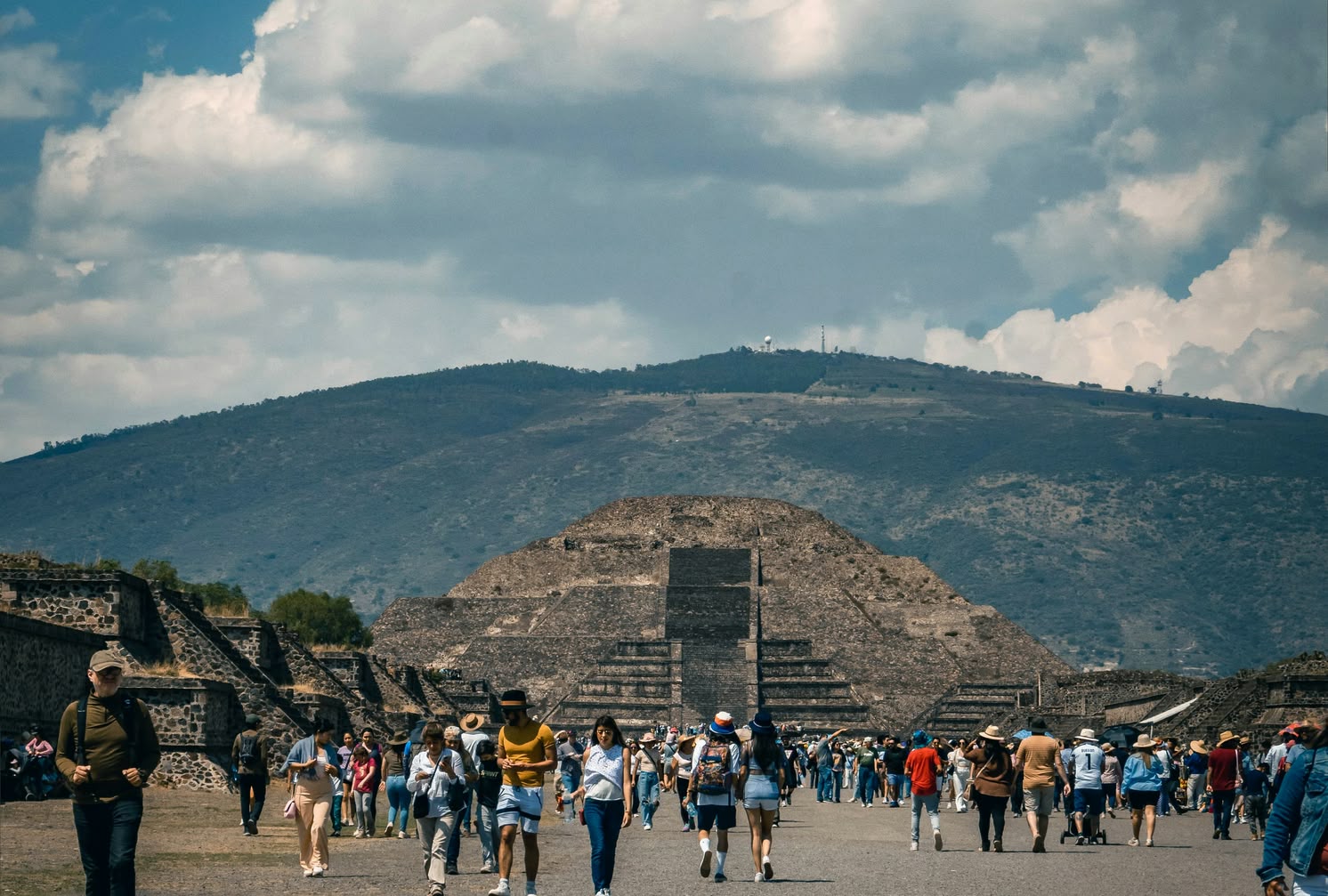
Mexiko Cities and the Sea
- Aztec ruins of Teotihuacán
- Magical villages of Puebla, Cholula and Atlixco
- Relax on the beaches of Playa del Carmen
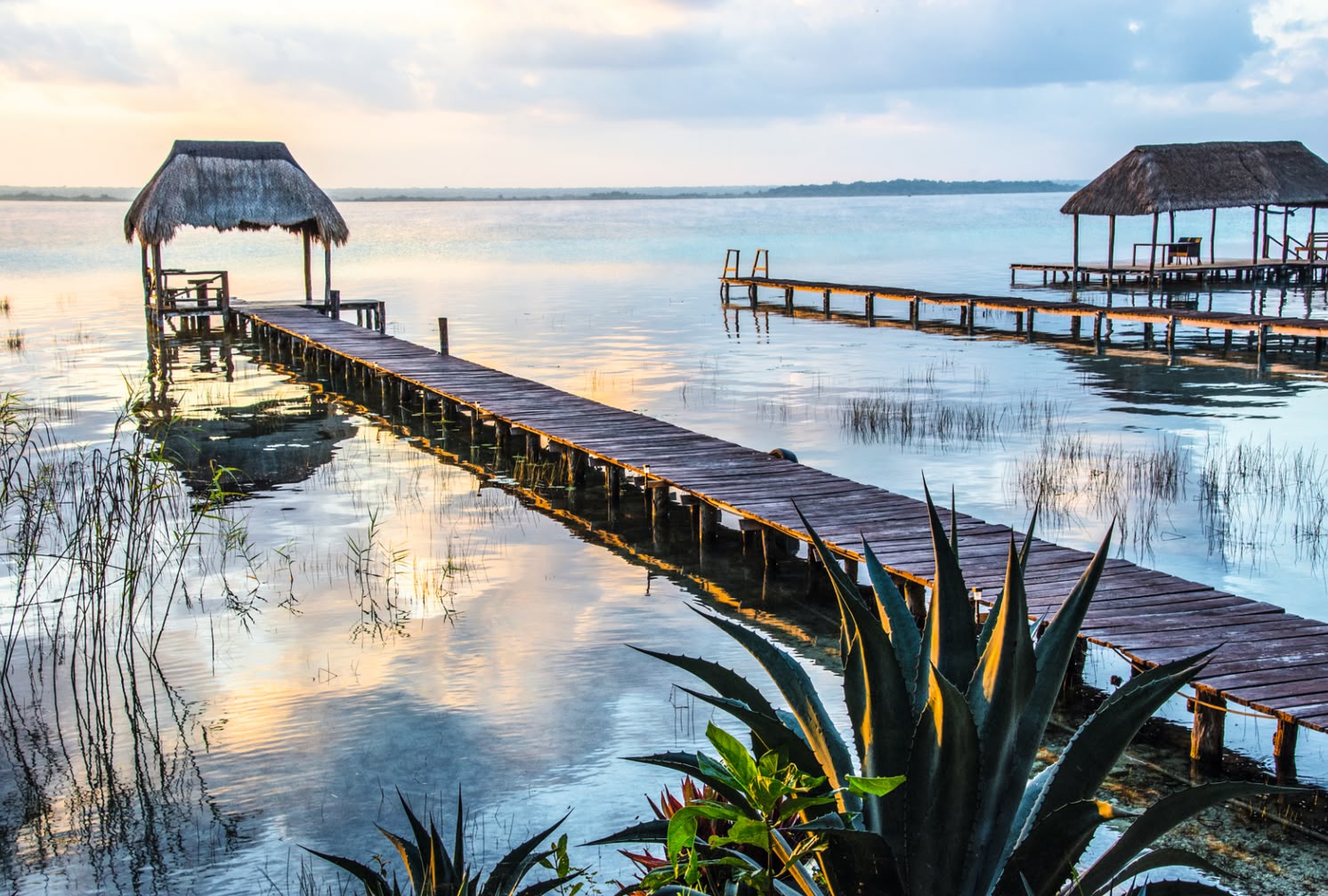
Riviera Maya
- Dream beaches of Playa del Carmen
- Mayan ruins of Tulum
- Unique lagoon of Bacalar
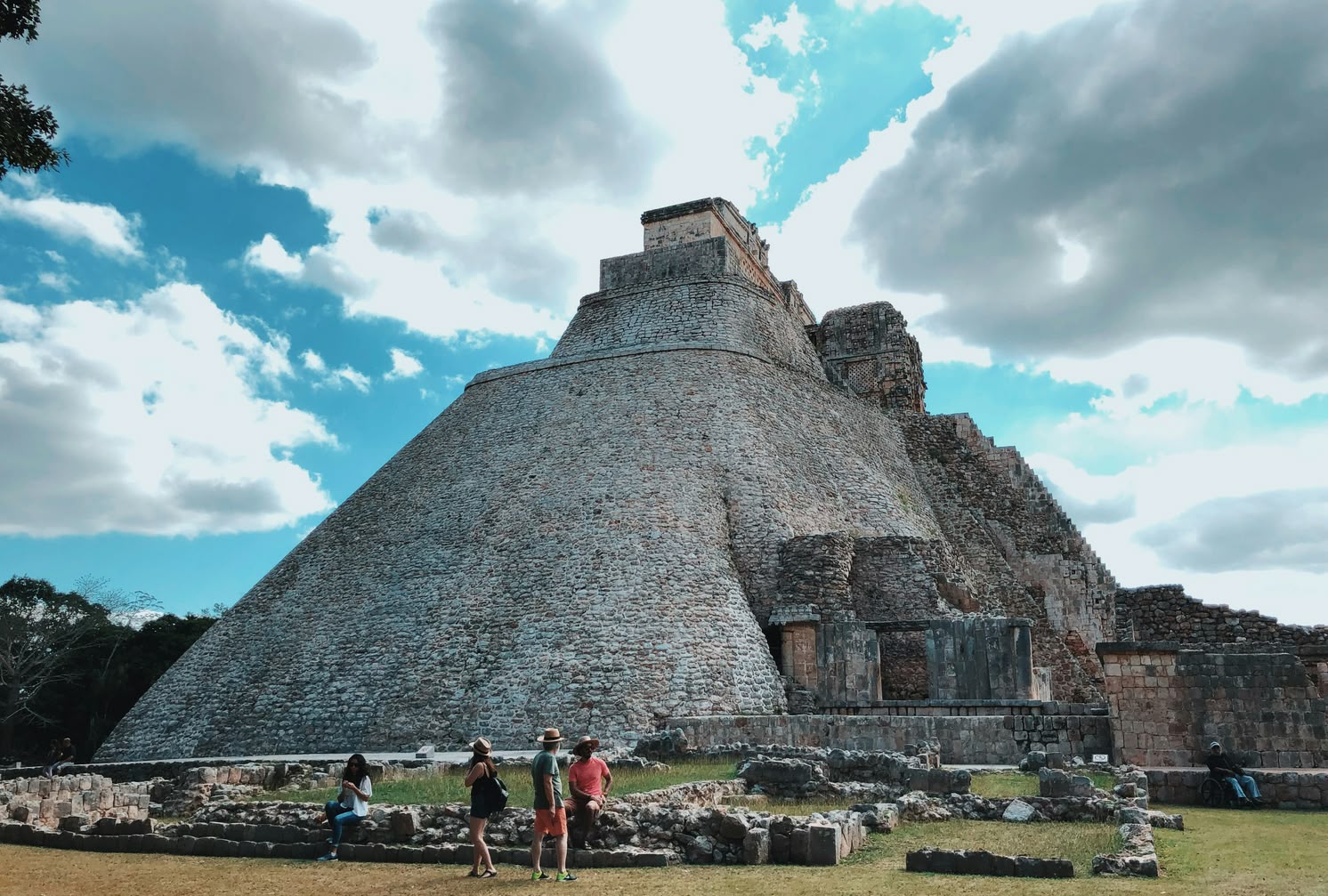
Fascinating Riviera Maya and Yucatán
- Mayan ruins of Chichén Itzá
- Colonial architecture in Mérida
- Picturesque beaches of Playa del Carmen
Three days you shouldn't miss in Mexico
Independence Day - 16 September
Independence Day is Mexico's most important bank holidays and commemorates the start of the Mexican War of Independence in 1810. The celebrations traditionally begin on the evening before, 15 September, with the famous Grito de Dolores, Father Miguel Hidalgo's cry for freedom. People gather all over Mexico to re-enact this historic moment. Parades, fireworks and festivals celebrating Mexican culture and independence follow on 16 September. This day symbolises the pride and freedom of the Mexican people.
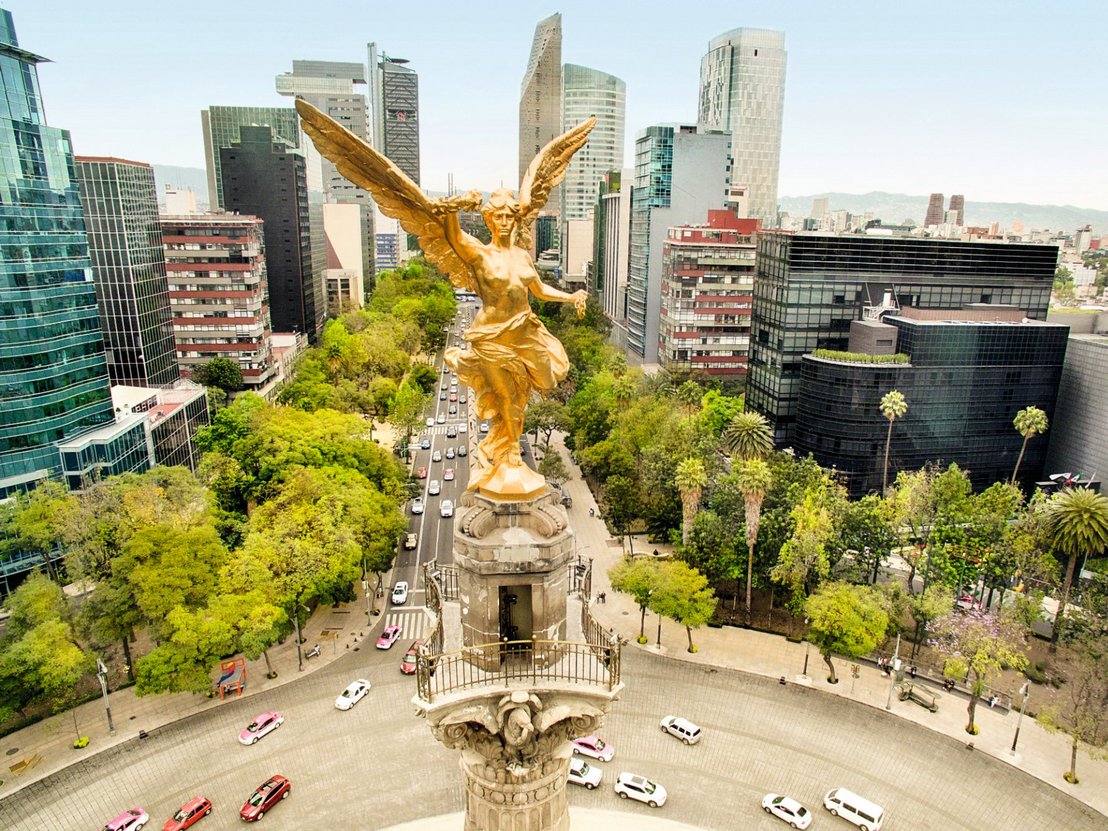
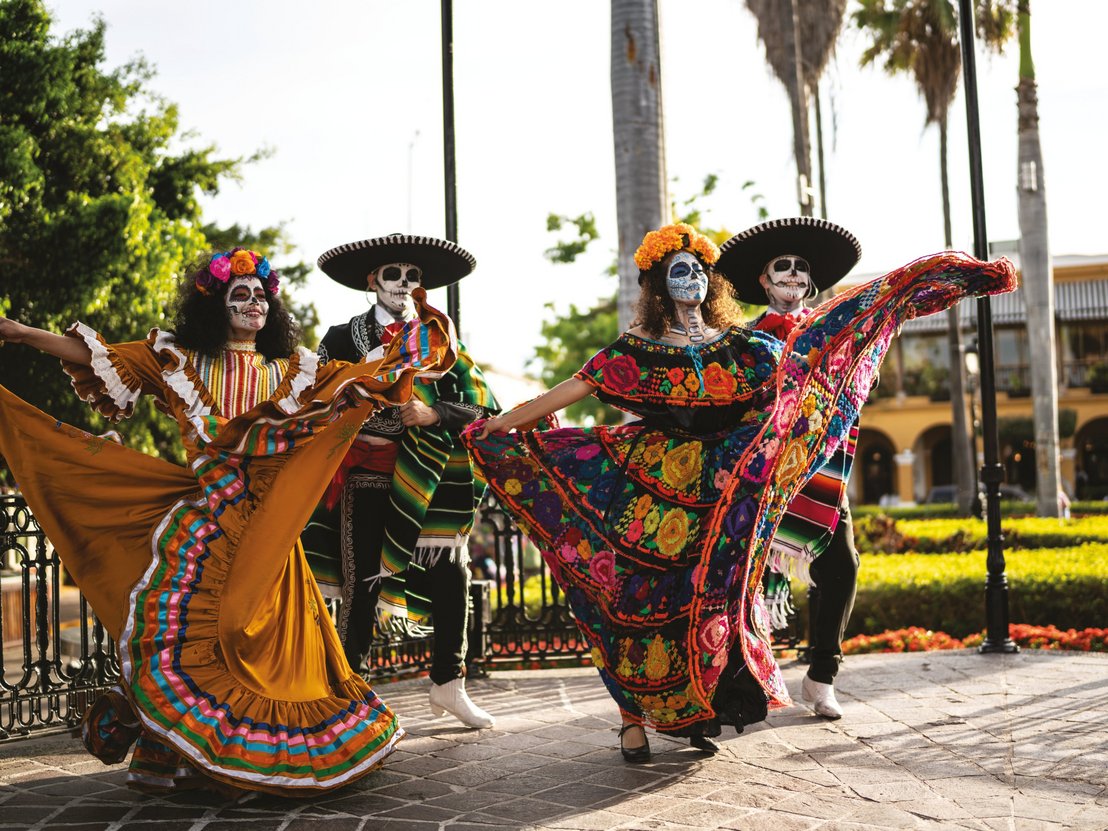
Día de los Muertos - 1 and 2 November
Día de los Muertos (Day of the Dead) is one of the most famous and unique festivals in Mexico. On 1 November, the deceased children are commemorated (Día de los Inocentes), and on 2 November, the deceased adults are honoured. Families erect ofrendas (altars) with flowers, candles, photos and the favourite foods of the deceased to welcome their souls. It is a joyful celebration that sees death as a natural part of the life cycle and keeps the memory of the deceased alive. Colourful parades and festivities take place in cities such as Oaxaca and Mexico City in particular, attracting locals and tourists alike.
Día de la Virgen de Guadalupe - 12 December
The Day of the Virgin of Guadalupe is one of the most important religious holidays in Mexico and is celebrated on 12 December. This day honours the Virgen de Guadalupe, the patron saint of Mexico, whose apparition in 1531 had a profound impact on the Catholic Church and the country's culture. Millions of believers make a pilgrimage to the Basilica of Guadalupe in Mexico City to show their gratitude and faith. Processions, masses and festivals characterise this day, on which the Virgen de Guadalupe is venerated as a symbol of national identity and unity.
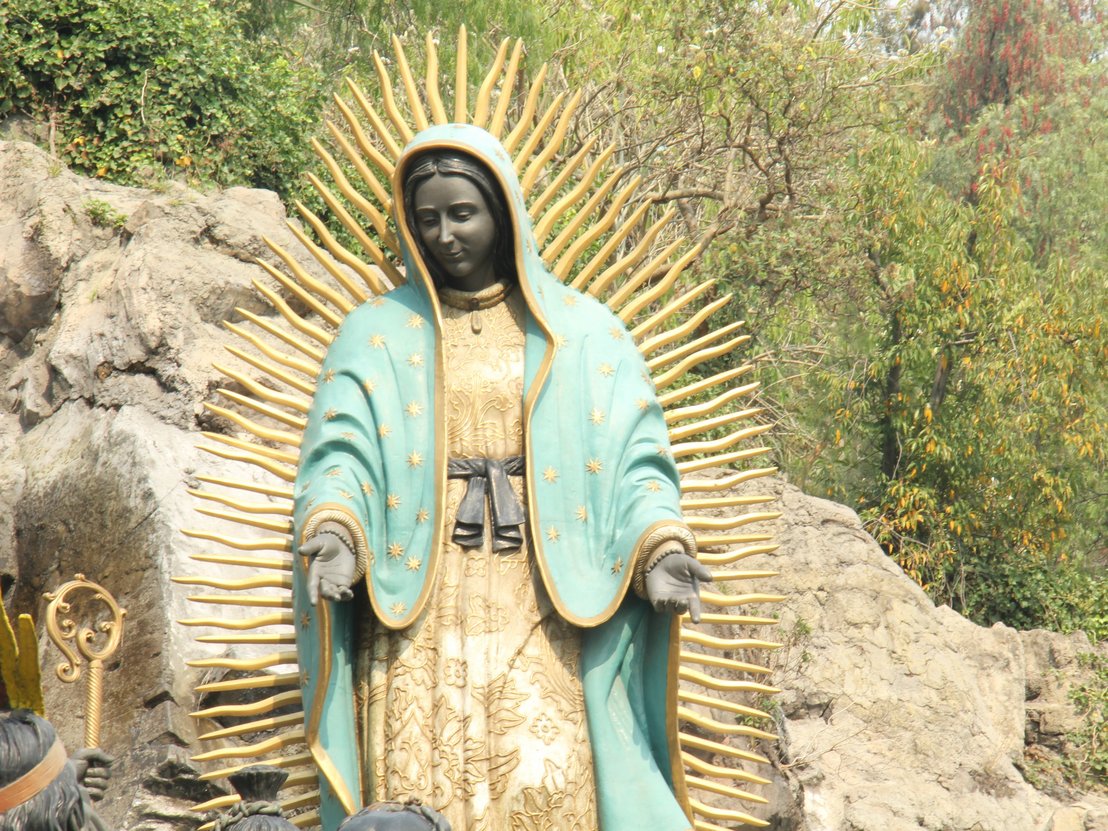
Don't miss the chance to make your dream trip a reality! Contact our experienced travel consultants now and let them inspire and advise you for your trip. Take the first step towards your unforgettable adventure!
Holidays in Mexico: Frequently asked questions and answers
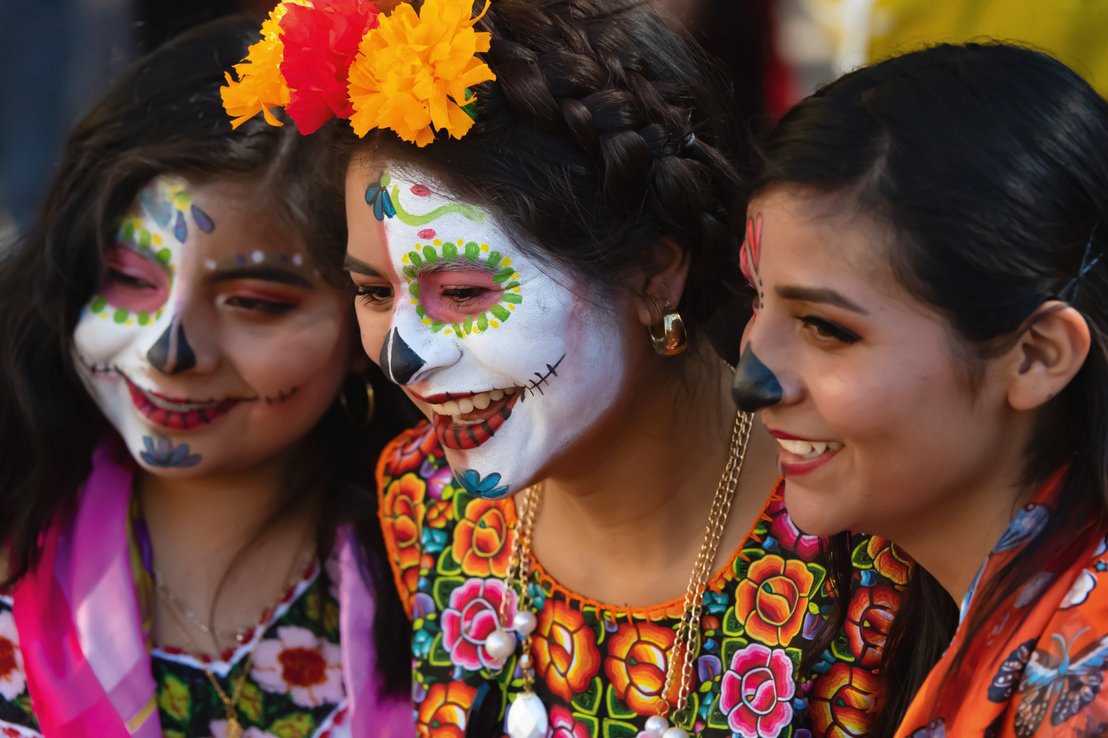
The most important public holiday in Mexico is Independence Day, which is celebrated on 16 September. This day commemorates the beginning of the Mexican War of Independence against Spanish colonial rule in 1810.
The celebrations traditionally begin on the evening before, 15 September, with the "Grito de Dolores" (Cry of Dolores), a patriotic speech that recalls the call by Father Miguel Hidalgo, who launched the fight for freedom. In towns and villages across the country, mayors and the president echo this cry and people gather to celebrate the start of the independence movement.
The Mexican Day of the Dead, also known as Día de los Muertos, is celebrated on 1 and 2 November.
On 1 November, Día de los Inocentes or Día de los Angelitos, the deceased children are commemorated, while on 2 November, Día de los Muertos, the deceased adults are honoured. On these days, families erect altars, so-called ofrendas, which are decorated with flowers, candles, photos, food and the favourite objects of the deceased. This celebration is joyful and recognises death as part of the cycle of life. The tradition has its roots in indigenous customs that are fused with Catholic elements.
The most famous folk festival in Mexico is the Feria Nacional de San Marcos, which is often simply referred to as the Feria de San Marcos. It takes place every year in April and May in the city of Aguascalientes and is the largest and most important fair in the country.
The Feria de San Marcos includes a variety of events, including bullfights, horse races, concerts, dancing, cultural events and amusement parks. Visitors can enjoy local traditions and handicrafts, and there are numerous markets, gastronomic offerings and sporting and cultural activities.
Cinco de Mayo is celebrated to commemorate the victory of the Mexican army over the French troops in the Battle of Puebla on 5 May 1862. This military success, led by General Ignacio Zaragoza, was symbolically important as the Mexican troops were outnumbered and outgunned, but still defeated the well-equipped French soldiers. Today, Cinco de Mayo is celebrated not only in Mexico but also in the USA, particularly in Mexican-American communities where it honours Mexican heritage and culture.
The La Guelaguetza festival, also known as Los Lunes del Cerro (Assembly of the Hill), is one of the most important cultural festivals in Mexico and takes place every year in July in the city of Oaxaca. It is a celebration of the indigenous traditions and cultures of the state of Oaxaca.
La Guelaguetza is deeply rooted in the indigenous Zapotec culture and symbolises sharing and cohesion. The word Guelaguetza means "mutual help" or "gift" in Zapotec and symbolises the community help among the various indigenous groups.
Yes, carnival is celebrated in Mexico, especially in the days leading up to the start of Lent. Carnival in Mexico is colourful and joyful and includes parades, music, dancing, costumes and festivities. Some of the most famous carnival celebrations take place in cities such as Veracruz, Mazatlán and Mérida. For those who want to experience the vibrant culture and exuberant celebrations during their holiday in Mexico, Carnival is the perfect opportunity to immerse yourself in the country's colourful traditions.
This might also interest you
Security Mexico
Find out more about the current security situation in Mexico and travel to this fascinating country full of unforgettable experiences with a clear conscience!
Culture & Religion
Learn the most important facts about Mexico's diverse culture, characterised by indigenous traditions and Spanish heritage.
Nature Mexico
Discover the breathtaking nature of Mexico and plan your adventures to experience the most beautiful landscapes at the best time.
